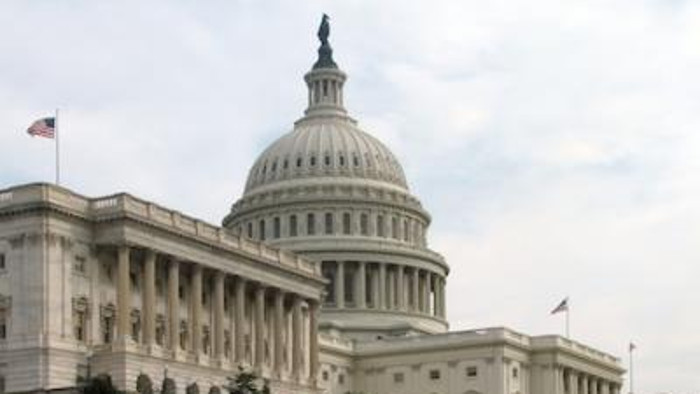Legislation Proposed to Require Refunds During TV Blackouts
‘Stop Sports Blackouts Act’ proposed by Rep. Ryan and Sen. Murphy

WASHINGTON—Last week Rep. Pat Ryan (D-N.Y.) and Sen. Chris Murphy (D-Conn.) introduced the “Stop Sports Blackouts Act” to make cable and satellite companies refund customers who aren’t able to watch the channels they already pay for during television blackouts.
The proposed legislation is just the latest attempt by lawmakers to intervene in conflicts between multichannel video program distributors (MVPDs) and broadcasters and other content providers that all too often result in cable and satellite companies dropping channels after negotiations break down.
In introducing the act, the legislators pointed to a dispute between Optimum and MSG Networks, affecting over a million customers in the New York City tri-state area who have been unable to watch the New York Knicks, New York Rangers, New York Islanders and New Jersey Devils on networks MSG and MSGSN. A separate blackout with Nexstar Media Group-owned WPIX New York left Optimum customers unable to watch “Judy Justice’ and local news for more than 10 days, the lawmakers said.
From 2010-2024, the two congressmen said New Yorkers experienced a total of 100 blackouts for a total of 3,350 days when consumers were blocked from viewing content they had paid for.
Ryan, who claims to be a champion of consumer protection in entertainment, previously demanded an investigation into blackouts and slammed sports leagues for making it more difficult for fans to watch games.
“It’s outrageous that millions of folks couldn’t watch the Knicks, Judy Justice, or dozens of other programs for weeks because of blackouts,” Ryan said. “And it’s even more ridiculous that we’re all still paying for the right to stare at black screens! I don’t see why this is even a debate—cable companies simply should not be able to advertise and charge for services they are not providing.
“On behalf of fans across the country, we’re putting down a marker: everyone will get their money back when a blackout stops them from watching TV, no questions asked,” he continued. “That means dollars back in your pockets and, equally importantly, it provides a hell of an incentive to these billion-dollar corporations to make sure these blackouts don’t happen in the future. They have teams of lobbyists looking out for them—I’m introducing this legislation because I fight for YOU.”
Get the TV Tech Newsletter
The professional video industry's #1 source for news, trends and product and tech information. Sign up below.
Said Murphy: “Blackouts are a slap in the face to every customer paying their hard-earned money for TV shows they can’t even watch. It’s ridiculous the rest of us get stuck in the crossfire of negotiations between cable and broadcast companies. Our bill is simple: if cable companies can’t provide the service you’re paying for, they owe you a refund.”
On Jan. 1, Optimum and MSG Networks announced that they were unable to renew their distribution agreement, leaving subscribers unable to watch NBA and NHL games in the middle of the season. On Jan. 10, Optimum subscribers were subjected to an additional blackout when the company announced it had failed to come to an agreement with Nexstar Media’s WPIX, which owns the syndication rights to popular show “Judy Justice,” starring Judge Judy Sheindlin, as well as the NewsNation network.
Congressman Ryan and Sen. Murphy’s “Stop Sports Blackouts Act” would direct the Federal Communications Commission to require television distributors to provide rebates to subscribers for television blackouts that occur as a result of carriage disputes.
Last month, the FCC passed a rule requiring cable and satellite pay TV operators to report commercial broadcast station blackouts that last than 24 hours or longer and were caused by failed negotiations over a new retransmission-consent agreement.
The American Television Alliance, a group of small and independent MVPDs, warned that such legislation will only increase prices.
“We agree it’s outrageous when big broadcasters unilaterally remove channels from TV lineups, blacking out content from consumers and depriving paying customers of critical local news coverage, sporting events and entertainment programming,” said ATVA spokesperson Hunter Wilson. “While well-intentioned, this bill will only raise prices for consumers. Blackouts are the result of networks and other big programmers holding their channels for ransom to force pay TV providers into higher-priced programming deals. Requiring pay TV providers to pay rebates will only encourage big broadcasters to further increase prices at a time when retransmission consent fees are at record highs.
“The broken retransmission consent system has led to nearly a thousand TV blackouts in the last decade,” he concluded. “ATVA stands ready to work with Congress to modernize dated regulations that turn sizeable profits for big broadcasters at the expense of consumers.”
NYC regional sports network MSG Networks—which was dropped by Optimum owner Altice USA at the beginning of the year and is currently in talks with Amazon to avoid bankruptcy—applauded the proposal.
An MSG spokesman said: “It’s not surprising that elected officials are engaged and standing up for their constituents. We appreciate Senator Murphy and Congressman Ryan’s efforts to fight for sports fans who are stuck paying for content they aren’t receiving, while Altice pockets their money. It’s time for Altice to do what’s right and agree to binding arbitration so that sports fans can again begin to watch games of their favorite teams.”
Tom has covered the broadcast technology market for the past 25 years, including three years handling member communications for the National Association of Broadcasters followed by a year as editor of Video Technology News and DTV Business executive newsletters for Phillips Publishing. In 1999 he launched digitalbroadcasting.com for internet B2B portal Verticalnet. He is also a charter member of the CTA's Academy of Digital TV Pioneers. Since 2001, he has been editor-in-chief of TV Tech (www.tvtech.com), the leading source of news and information on broadcast and related media technology and is a frequent contributor and moderator to the brand’s Tech Leadership events.

